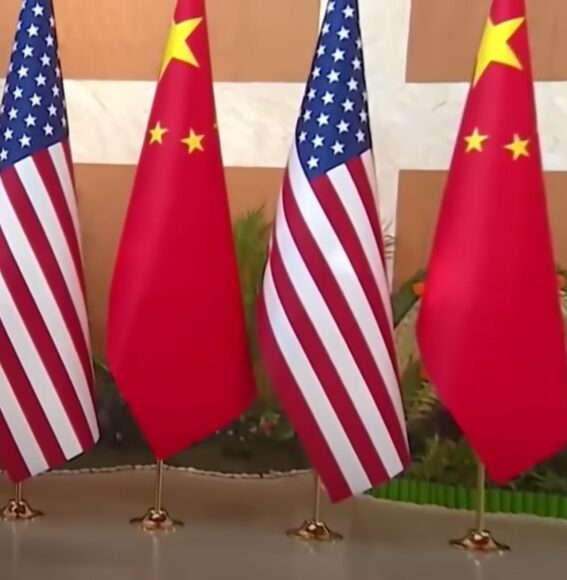The ongoing trade conflict between the United States and China has intensified, with both nations imposing steep tariffs that have effectively brought bilateral trade to a standstill. The latest developments have sent shockwaves through global financial markets, raising concerns about a potential worldwide recession.
U.S. Implements 104% Tariffs on Chinese Imports
On April 9, 2025, the U.S. government, under President Donald Trump, enforced a substantial 104% tariff on Chinese imports. This move is part of the administration’s “reciprocal” trade strategy aimed at addressing what it perceives as unfair trade practices by China. The implementation of these tariffs has led to significant market volatility, with the S&P 500 experiencing a four-day loss of $5.8 trillion and European markets also facing substantial declines.
China Retaliates with 84% Tariffs on U.S. Goods
In response, China’s Ministry of Finance announced an increase in tariffs on U.S. imports to 84%, effective April 10, 2025. This escalation is a direct countermeasure to the U.S. tariffs and reflects China’s stance against what it describes as unilateral bullying practices by the United States.
Global Economic Implications
The tit-for-tat tariff impositions have had far-reaching effects on the global economy:
Financial Markets: The announcement of these tariffs has led to a global selloff in financial markets. U.S. Treasuries and the dollar, typically considered safe havens, have been particularly affected. The 10-year U.S. Treasury yield surged by 40 basis points over three days, marking one of the steepest climbs in 25 years.
Commodity Prices: Oil prices have plummeted to their lowest levels since February 2021, with Brent crude falling by 7.5% to $64.85 per barrel. This decline is attributed to fears of reduced global demand amid escalating trade tensions.
Agricultural Trade: Asian countries, including China, Japan, and South Korea, are significantly reducing imports of U.S. agricultural products due to increased tariffs and shipping costs. This shift is causing U.S. soybean and wheat futures to hit multi-month lows.
International Responses and Concerns
The international community has expressed apprehension regarding the escalating trade war:
European Union: The EU is preparing retaliatory measures in response to the U.S. tariffs, indicating a potential widening of the trade conflict.
France: Patrick Martin, head of France’s Medef business lobby group, has voiced concerns that the U.S. tariffs pose a significant risk to global economic growth and could potentially trigger a recession.
Outlook
The escalating tariff war between the U.S. and China is causing significant disruptions in global trade and financial markets. Analysts warn that if the situation continues to deteriorate, it could lead to a global recession. Both nations face mounting pressure to engage in negotiations to de-escalate tensions and restore stability to the international economic landscape.




